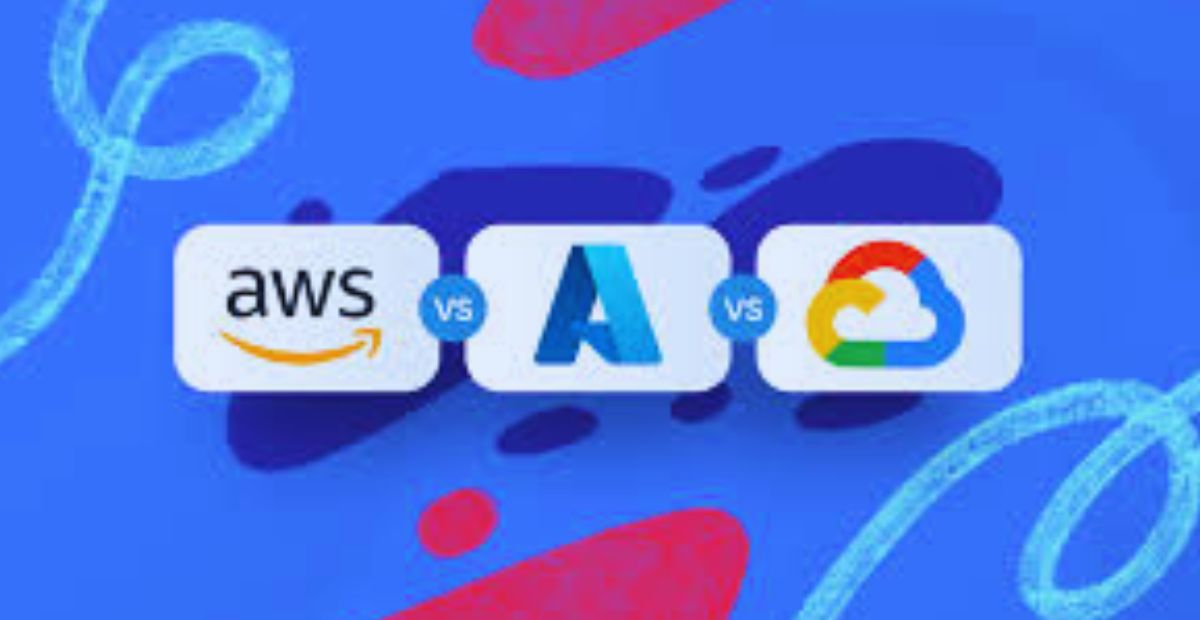In today’s digital age, cloud computing has become the backbone of modern businesses. Organizations across the globe rely on cloud platforms to power their infrastructure, manage data, and scale applications. Among the many providers, three giants dominate the market: Amazon Web Services (AWS), Microsoft Azure, and Google Cloud Platform (GCP). Each offers a suite of powerful tools and services, but choosing the right one depends on a variety of factors. In this article, we will compare AWS, Azure, and Google Cloud in terms of features, pricing, performance, and more.
1. Overview of the Big Three
Amazon Web Services (AWS):
Launched in 2006, AWS is the pioneer in cloud computing. It boasts the largest market share and offers a wide array of services, ranging from computing power and storage to machine learning and analytics.
Microsoft Azure:
Introduced in 2010, Azure has rapidly gained popularity, particularly among enterprises already using Microsoft products. Its seamless integration with tools like Windows Server, Active Directory, and Office 365 makes it a preferred choice for hybrid environments.
Google Cloud Platform (GCP):
GCP entered the scene in 2011 and is best known for its strength in data analytics, machine learning, and open-source technologies. It is particularly popular among developers and data scientists.
2. Service Offerings
All three platforms provide a comprehensive set of cloud services, but each has its strengths:
| Feature/Service | AWS | Azure | Google Cloud |
|---|---|---|---|
| Compute | EC2, Lambda | Virtual Machines, Functions | Compute Engine, Cloud Functions |
| Storage | S3, EBS, Glacier | Blob Storage, Disk Storage | Cloud Storage, Persistent Disk |
| Databases | RDS, DynamoDB, Redshift | SQL Database, Cosmos DB | Cloud SQL, BigQuery, Firestore |
| AI/ML | SageMaker, Lex | Azure Machine Learning | Vertex AI, TensorFlow |
| Containers | ECS, EKS | Azure Kubernetes Service | GKE (Google Kubernetes Engine) |
| DevOps Tools | CodePipeline, CloudFormation | Azure DevOps, ARM Templates | Cloud Build, Deployment Manager |
3. Pricing Models
Pricing can be one of the most confusing aspects when comparing cloud platforms, as it varies by service, usage, and region. Here’s a simplified look:
- AWS: Offers a pay-as-you-go model with a free tier for limited usage. Known for its complex pricing structure.
- Azure: Similar to AWS, Azure provides a pay-as-you-go system with reserved instances for cost savings. It often offers hybrid benefits for Windows Server users.
- Google Cloud: Known for its user-friendly pricing. Offers sustained use discounts and a generous free tier, especially for BigQuery and Cloud Functions.
Note: Cost comparisons should always be based on actual usage and projected workloads, as differences can be subtle but impactful.
4. Performance and Global Reach
- AWS has the most extensive global infrastructure, with more than 100 availability zones across 30+ regions.
- Azure follows closely, with data centers in over 60+ regions worldwide, making it the broadest in geographic reach.
- Google Cloud has a smaller footprint but continues to expand, with a focus on performance and low-latency networks through its proprietary fiber network.
5. Ease of Use and Interface
- AWS: Feature-rich but can be overwhelming for new users due to its complex interface and countless services.
- Azure: Offers a user-friendly portal, especially appealing to Microsoft-savvy teams.
- Google Cloud: Praised for its clean UI, developer-friendly tools, and simple navigation.
6. Security and Compliance
All three platforms provide top-tier security features, including encryption, identity management, and compliance with global standards such as GDPR, HIPAA, and ISO certifications.
- AWS: Offers extensive compliance support and robust security tools.
- Azure: Strong in enterprise-grade security, with tight integration into Microsoft security products.
- GCP: Leverages Google’s security infrastructure and excels in securing data at scale.
7. Market Position and Use Cases
- AWS is ideal for startups to large enterprises needing a wide variety of services and mature infrastructure.
- Azure is best suited for enterprises with existing Microsoft investments and those needing hybrid solutions.
- Google Cloud is a strong choice for data-centric workloads, AI development, and organizations preferring open-source technologies.
Conclusion
Choosing the right cloud platform depends largely on your organization’s specific needs, budget, and technical preferences.
- Go with AWS if you need the most comprehensive and battle-tested platform.
- Choose Azure if your business runs on Microsoft technologies and you’re aiming for hybrid cloud solutions.
- Select Google Cloud if your focus is on innovation, data science, and containerized applications.
Each platform has its strengths and trade-offs. The best decision comes from aligning platform capabilities with your business goals, technical requirements, and long-term strategy.
